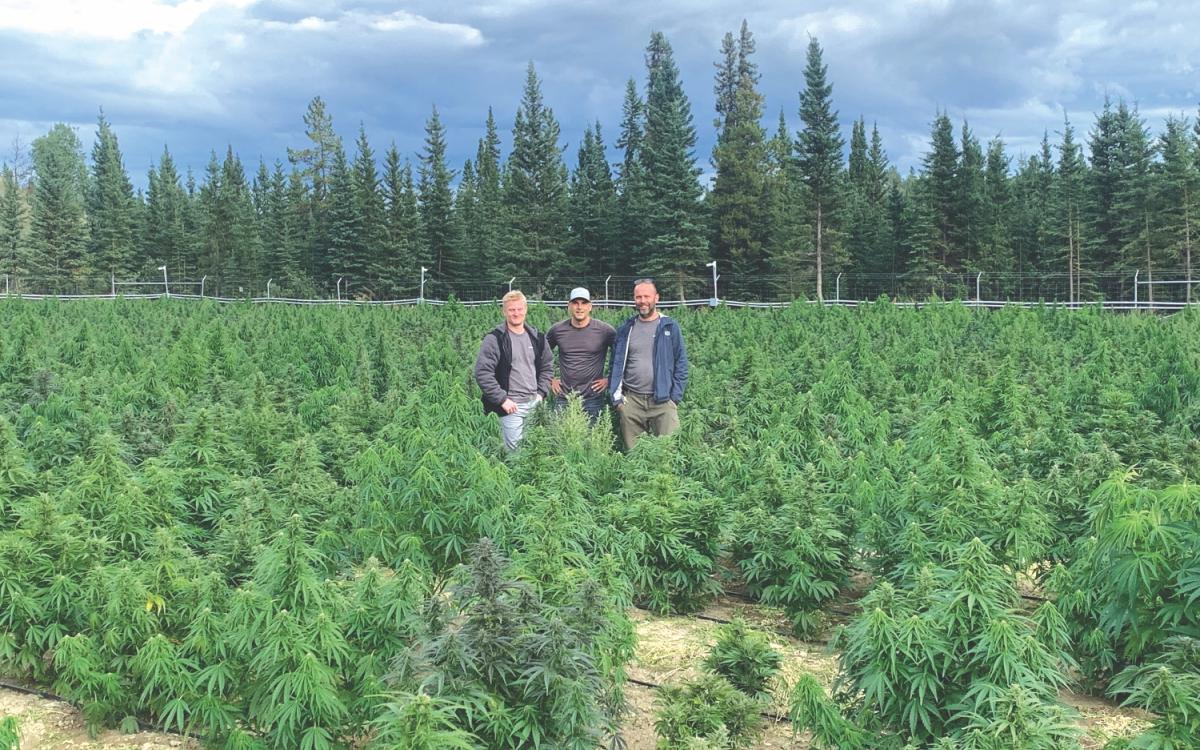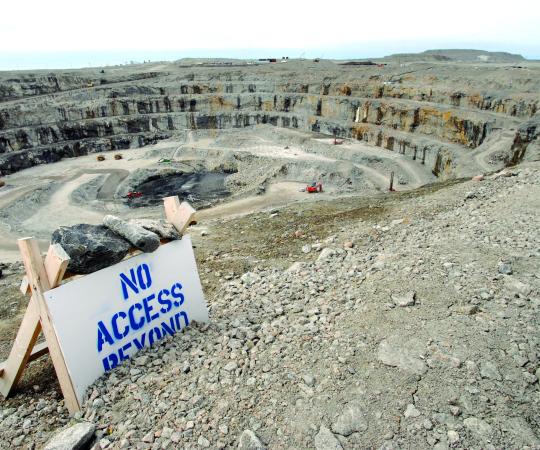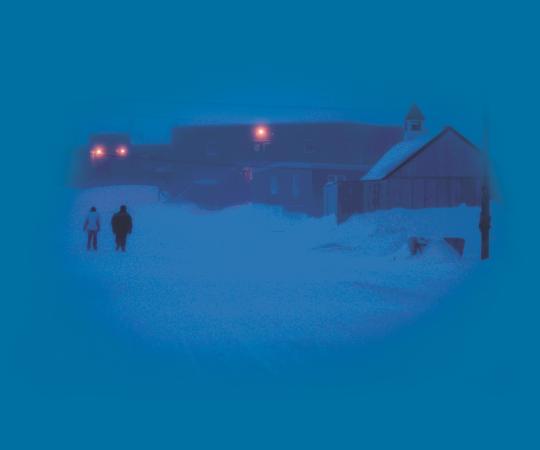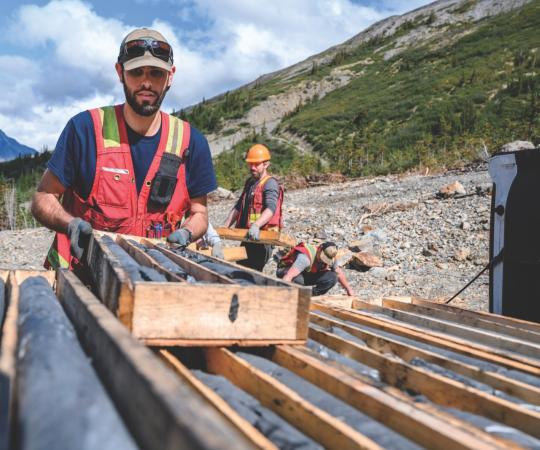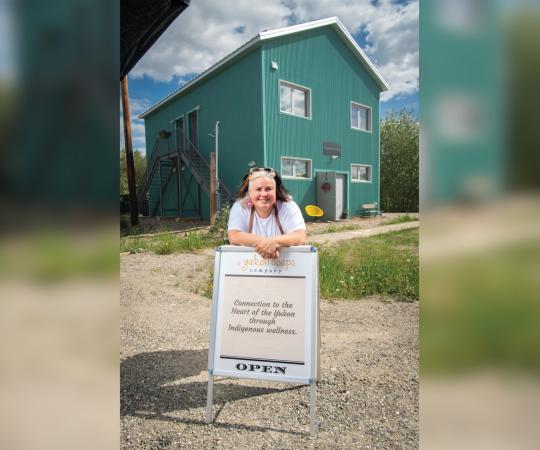THE TIMING couldn’t have been better for Chris Cornborough and Sean Stofer, at least from a storytelling point of view. As cannabis fans across Canada observed the 2021 edition of 4/20—an annual ad hoc salute to all things cannabis—the Vancouver-based entrepreneurs were receiving news that they’d been approved for their cultivation and processing licence. Against what appeared to be long odds, they finally had all the paperwork in hand to launch ArcticPharm, the first—and, so far, only—licenced cannabis grower North of 60 degrees.
This past June, Cornborough and Stofer celebrated another milestone: ArcticPharm made its first shipment of products—an organically grown dry flower and range of pre-rolls—to the Yukon Liquor Corp. for distribution to the territory’s six licenced cannabis retailers. It also planted its second crop and announced that the Ontario Cannabis Store, the provincially owned wholesaler, was adding two ArcticPharm products to its catalogue, launching a national presence for a wholly northern cannabis products supply chain.
“It’s important for the North to have its own brands,” says Stofer, a structural engineer who serves as ArcticPharm’s chief operating officer. (Cornborough, a real estate developer, is the CEO.) “The North is often perceived as being at the end of the road far from the rest of Canada, when it’s very much not that way.”
Some may wonder what motivated Cornborough and Stofer to invest in cannabis cultivation in the Yukon, where the winters are long, dark, and hostile to agriculture as is practiced elsewhere in Canada. Their interest started with a shared affinity for the territory and a recognition that winter is only half of the local climate equation: The extended sunshine in the summer means plants will flourish, Stofer says. And that’s just for starters. Low humidity—Whitehorse experiences about 10 per cent to 15 per cent less humidity than southern growing locations—mitigates the risk of mould and pests, which Stofer says are huge problems for growers in other regions.
Cornborough and Stofer already had their eyes on the Yukon when Canada legalized marijuana in October 2018. They wanted to be the first in the Yukon to offer a wholesale product and they applied for a grower’s licence as soon as they were able to do so. It turned out so were hundreds of other companies across Canada, which created an early headache. Many of those initial applicants were seeking licences without immediate plans to use them, forcing Health Canada to re-evaluate who it was approving.
“They shifted from accepting applications on paper to requiring a fully built and audited facility prior to advancing applications and ultimately issuing a license,” Stofer explains. Luckily, Stofer’s background in engineering and architecture came to the rescue. The ArcticPharm team was able to build a facility quickly and obtain a license soon after.
Construction at ArcticPharm’s 116-acre property north of Whitehorse began in 2019 and was completed a year later. The first crop—30,000 plants—was started in the company’s greenhouse in 2021 as ArcticPharm received its licence. When spring turned to summer, the seedlings were replanted outdoors to take advantage of the extended daylight. Harvest arrived in the fall as daylight receded. Prime “colas”—flowering sites, sometimes called “terminal buds”—were dried, trimmed, and cured in a multi-stage process over several weeks. From there, ArcticPharm manufactured its first run of products.
Working with the rhythms of the northern climate, as demonstrated in that first year, is the foundation of ArcticPharm’s operations. The company is also among a handful of fully organ- ic producers in Canada and with independent oversight from the Pacific Agricultural Certifi- cation Society, a non-profit that evaluates agri- cultural producers for compliance with official standards. All materials ArcticPharm uses must be certified organic, the plants must grow in five times more soil than in non-organic farms, and the business is subject to annual audits.
To help manage the process, Cornborough and Stofer teamed up with John Lenart a part- ner in Dawson City’s Klondike Valley Nursery. “John is a seasoned veteran of horticulture and growing in the North,” Stofer says. “We brought John on board right off the get-go when founding this company.”
With ArcticPharm’s first crop now on the market, the company is moving from the start- up phase to a full production cycle. Stofer won’t say how much it has invested to get this far but acknowledges the cost of buying land and building a facility that complies with the Can- nabis Act and Health Canada standards runs into “many millions.”
The upside is that ArcticPharm has prod- ucts on the market. The yield from its first harvest is difficult to measure, but Stofer says product volumes total about two million pre- rolls and hundreds of kilograms of dry flower. (A survey of retailer websites shows that Arc- ticPharm’s dry flower products sell for between $45 and $55 for 3.5 grams with three-packs of pre-rolls going for around $30.)
With the 2022 harvest—the company’s second—now in the manufacturing process, ArcticPharm is also working on expanding its product range, including introducing bal- anced-CBD and high-CBD infused pre-rolls. It is also working on expanding its reach with the goal of entering five or six new markets in the coming year.
Although ArcticPharm is targeting growth, Stofer says the company is determined to maintain its northern identity. Its tagline, “True North,” reflects not only where the product comes from, but the values behind northern living, Stofer says. Plus, it helps put the Yukon on the map.
“It’s important for the North to have its own brands,” Stofer continues. “Tourism is increasing, and people are figuring out what’s up here and how beautiful it is. It’s not bar- ren whatsoever. We have lots to offer and that should be advertised as much as possible.”

